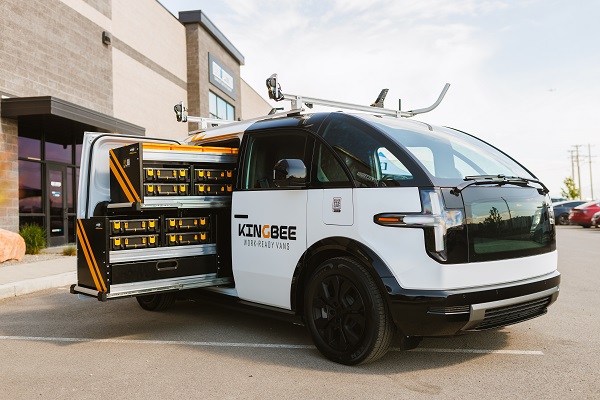
August 15, 2023
The disappearance of small cargo vans like the Ford Transit Connect, Ram ProMaster City, or Mercedes-Benz Metris has led many fleet companies to face yet another challenge: explore alternative options to meet their needs.
Here are some of the strategies some of them are employing to replace these small cargo vans, and particularly, how the decision to size up or down is impacting their operations — not to mention their standing relationships with suppliers.
Pickup Trucks and SUVs: In cases where cargo vans are primarily used for deliveries or transportation of equipment, some fleet companies are turning to pickup trucks with enclosed bed covers or utility caps.
“We’re starting to see a trend where more traditional passenger vehicles, not really considered commercial vehicles until now, are having to fit the void left by the small cargo vans.” says Michael Diaz, Director of Fleet Upfit Solutions for Ranger Design.
Modifying conventional passenger vehicles such as SUVs has introduced fresh upfitting alternatives into the market. As such, SUVs necessitate the installation of a sturdy partition to ensure the safety of both the driver and passengers against cargo movement. Upfitting experts must also consider the incorporation of design elements that accommodate side and curtain airbag deployment zones, a consideration not applicable to cargo vans.
“When sizing down to a smaller vehicle, it is critical to ask if the customer is using everything in their current model on a daily basis – or is it just there because the space was there?” Diaz said. “As the upfitter, it is important to understand what customers are really using their cargo van for today. This way, we can we ensure that they make the transition without compromising safety, efficiency, or the quality of the upfit.”
Larger Vans: Many fleet companies are opting for higher cargo capacities, allowing them to accommodate a wider range of goods, making them suitable for businesses with growing delivery or hauling requirements.
Electrification: As EV technology advances, fleets are considering electric cargo vans as a sustainable and cost-effective alternative, providing both environmental benefits and operational savings in the long run. As the transition towards electric vehicles continues to grow, fleet companies will necessitate flexible and lightweight upfits, accessible charging infrastructures, which in turn, underscores the need for improved route planning.
“Our engineers have had a focus on developing EV-ready products for a very long time, such as a drill-free E-floor. More recently, our team introduced a composite shelf with aluminum end panels. By doing this, we were able to save nearly 35% weight compared to a steel version, and without compromising quality or strength. And to top it all, we were able to do it cost neutral,” Diaz said.
Hybrid Solutions: Some fleet companies are adopting hybrid strategies, combining different types of vehicles to create an efficient and flexible fleet mix. For instance, they might use larger vans for bulk deliveries and compact EVs for short-range urban deliveries.
In summary, the disappearance of small cargo vans is encouraging fleet companies to reassess their needs and seek out alternatives that offer the required cargo capacity, efficiency, and operational flexibility. Their replacement strategy will largely depend on the industry, operational requirements, and the evolving landscape of commercial vehicles.
“There are fleets out there who are still trying to make the decision about what to do instead of a small van. Over the next 12 months, we are going to see a number of different solutions come to market to address the small vans leaving in the market,” says Diaz. “Truly assessing the customer’s needs and using a diagnostic approach is going to be so incredibly important for any partner in the fleet ecosystem to provide that to fleet managers, because this is a new curveball being thrown their way.”






